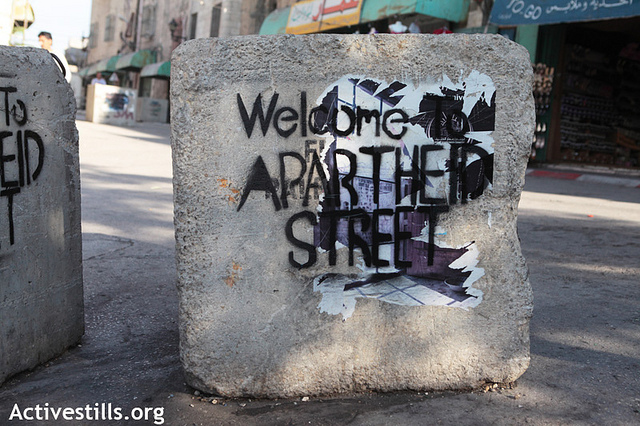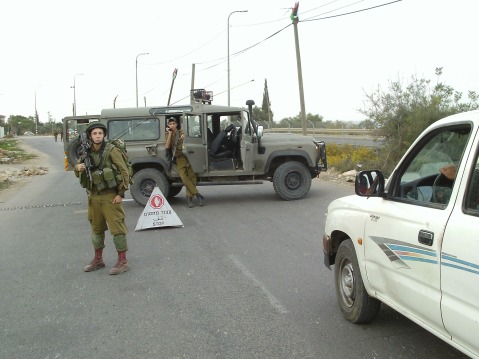Tag: Restriction of movement
-
ACT NOW ! Put an end to the ‘Closed Military Zone’ in Tel Rumeida and Shuhada Street, Hebron
December 13th, 2015 | International Solidarity Movement | Action Alert The undersigned organisations are calling on the international community to take immediate action regarding the continuous closure of the Tel Rumeida neighborhood and the part of Shuhada Street that has remained accessible to Palestinian residents since the Ibrahimi mosque massacre in 1994, in occupied al-Khalil…
-
Updated: The three Palestinian women activists arrested last week remain imprisoned
21st August 2013 | International Solidarity Movement, Nablus Team | Nablus, Occupied Palestine Update 26th August: On Thursday, August 22, Leena Jawabreh was sentenced to 30 days (one month) in Israeli prisons, and a 1000 NIS fine. On Sunday, August 25, Linan Abu Ghoulmeh was sentenced to 60 days (two months) in Israeli prisons and…



